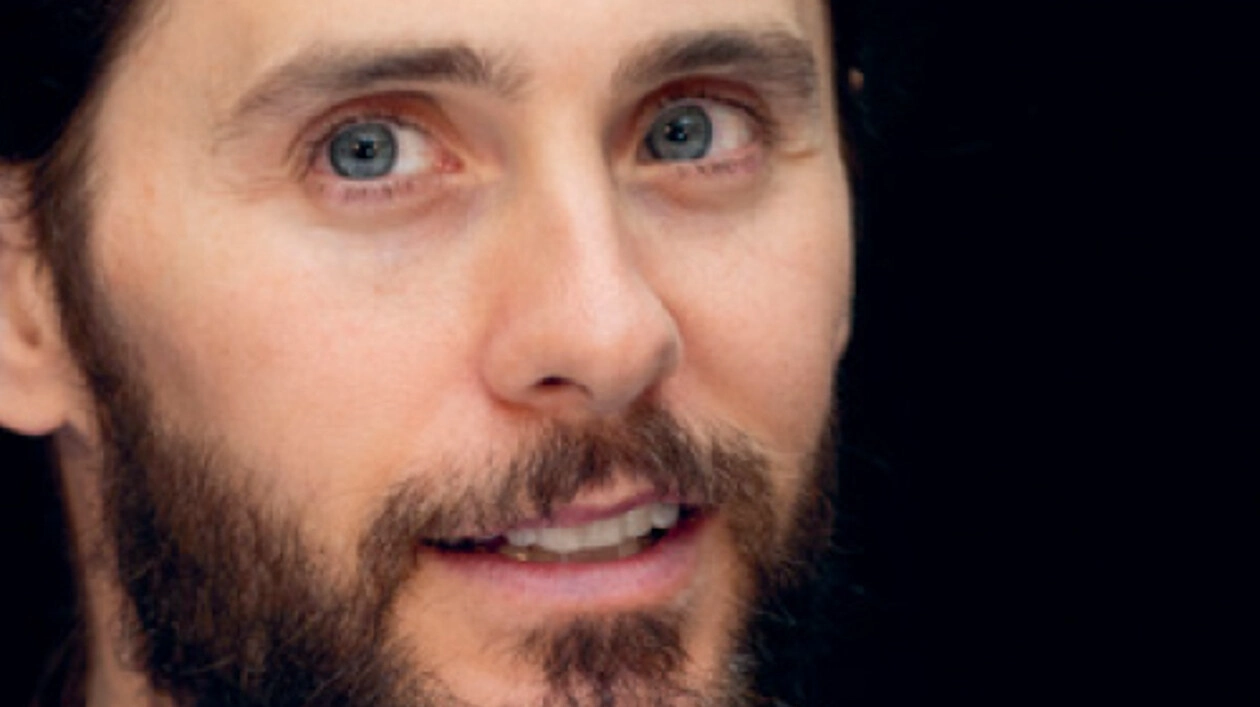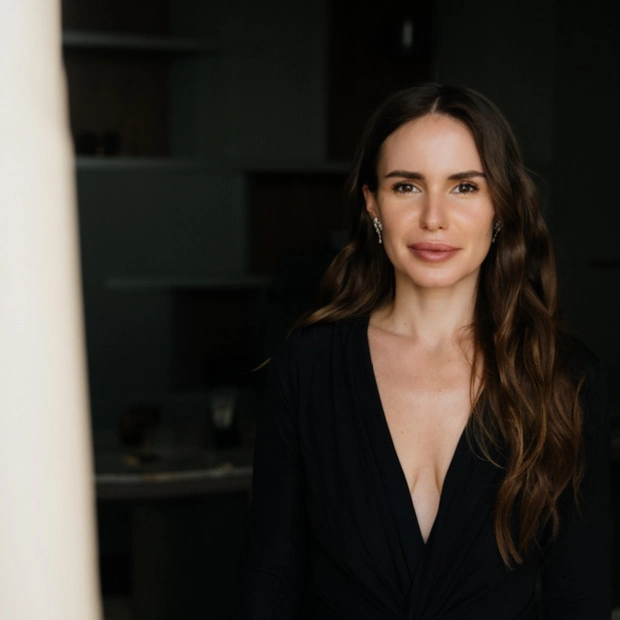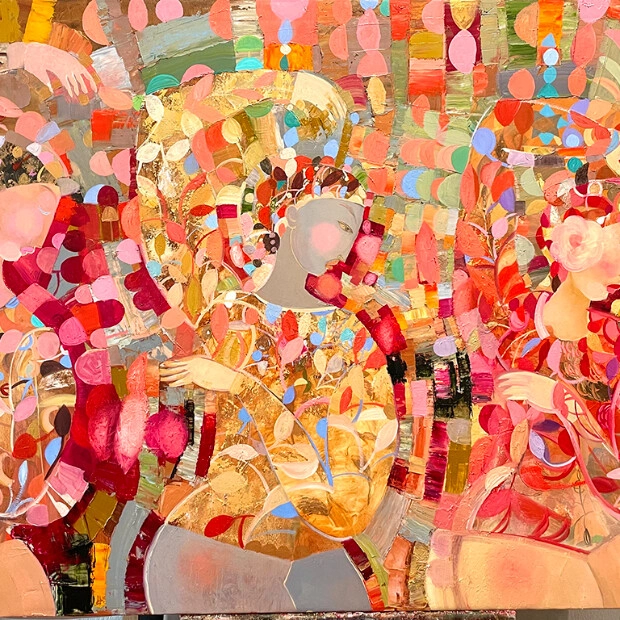A gifted person can be very good at anything he lays his hands upon. Human history is replete with examples of such talents. Meanwhile, one does not have to be Leonardo Da Vinci to become famous for that. Jared Leto, our special correspondent Nellee Holmes’ interviewee, is good enough a name.
Nellee Holmes. Where are you now, I wonder?
Jared Leto. I’m currently in Nevada, near a place called Red Rock.
N.H. During your career, you’ve played an eclectic array of characters, some of whom live on the edge of insanity. Watching the film, we often think we understand what’s going on while we may not know everything. Still, the whole thing is not about ambiguity but about so much impression we get. Could you talk a bit about how you tempered the guy you played this time?
J.L. Yeah, it’s a good question. I appreciate your asking it. It’s something I talked to John Lee Hancock about quite a bit. First of all, creating Albert Sparma was a huge undertaking. A lot of attention was paid to every aspect, from top to toe, of this character. Initially, I turned down the role because I did not want to play a suspect or a villain.
I spoke to John Lee Hancock, and he wanted to walk down the same path as me, i.e., to create something unique and transformative, something very physical, as well as emotional, and that’s exactly what we did. I have a different eye color, nose, teeth, and prosthetics. My body weight and walk are also completely different, so for me, it was challenging but fascinating to step into Albert Sparma’s shoes. We had to dig around a bit and ask questions like: How does he know what he knows if he didn’t do it? And if he did do it, how does he get away with it? So, with all of the things we had to address, we almost had to write a second script alongside the first one.
N.H. Was it a padded costume, or your eating lots of lunches?
J.L. I was eating lots of lunches for sure. The voice was an important key to this guy - the way he spoke and his rhythm. The way he walked, took up room space, interacted with people, invaded their personal space, challenged them, and his sense of humor are also essential. It was incredibly fascinating to take on this challenging role and let go of it at the end of the day. It was quite intense.
N.H. I was impressed by your gait and posture. We learn about your character through your visual representation of him. Could you expand a little bit on your thinking underpinning your performance?
J.L. Yeah, it was quite a big and incredibly challenging one. We dug pretty deep. I’m a big fan of research though I end up throwing out 90 percent of it. Still, you never know when that 10 percent is going to come in handy. For Albert Sparma, I did a lot of listening to FBI tapes, studying, and talking with experts around the world. The actual physical construction of the character was a real key for me. Like I said before, the voice was a wide avenue into the character and his physicality - the way he moved his body and, kind of, shuffled around. His gait took a lot of experimentation and, I think, ended up being a great hook into the character for me. And there were all the other things we did to, kind of, push away from whatever was close to me towards something else. It was eternally fascinating to do that. So, it was an immense undertaking, a lot of work, exhausting but exciting, and a lot of fun.
N.H. What was the silent retreat you emerged from like, I wonder? How important is it for you to shut down and communicate with no one? How often do you do that?
J.L. Well, it’s getting more and more essential as I’m getting older. I tend to take on pretty challenging and immersive roles, taking a lot out of me in the end, like that of Albert Sparma. The best antidote here is quiet, silence, and simplicity. I think a lot of us have faced that kind of need in the COVID 19 times. As to me, the more, the merrier (Laughs). I could use as much of it as possible. When you’re always writing music or touring the world, like I am with Thirty Seconds to Mars, making films, and having an enormous creative output, you have to find some quiet and simplicity to recharge your batteries. I highly recommend it.
N.H. What was it like to come back and, all of a sudden, hear about COVID?
J.L. When I went into my silent retreat for 12 days or so, there were roughly 150 cases in America. At the time I came out, there was a shutdown. So that’s how quickly things progressed, and it was pretty wild to come out into, basically, a new world. We hadn’t heard any news or rumors - a silent retreat means no communication of any kind. Still, I was incredibly well-prepared to take and use that time wisely.
N.H. You worked with Denzel Washington, who’s always been on the best actors list for the last 50 years or so. Why do you think nobody doubts he’s one of the best?
J.L. Well, it’s a great question. I have some thoughts on that. Number one: his talent and professional abilities. Number two: his consistency. Number three: I don’t think he’s ever been bad in a movie. Even if it doesn’t work, he’s always good, thanks to his incredibly powerful physical presence and wonderful voice. His emotional range and ability to see and feel what his characters are going through make him just fantastic to look at. Denzel works hard and puts a lot of himself into his roles. So, I think it’s a combination of all of the above. What an example of a brilliant career and consistency!
N.H. What was it like working with Denzel Washington?
J.L. For me, it was a dream. I played a very intense character interacting with people in a unique way of his own. On the very first day, I did a little improvisation with Denzel Washington. I threw the ball to him. He caught it and threw it back to me in such an amazing way that it just blew my mind. From that moment on, I knew we were off to the races. I’m so grateful to him for giving me space to be brave enough to fail from time to time and be as creative as I could.
N.H. I was so moved by this character of yours and felt a lot of empathy for him. You changed your physicality so much for this role. I wonder what makes you say yes to a role in the first place?
J.L. I don’t often say yes. I often say no. I have a busy life outside acting. It’s my music, of course. When I do take on projects, they always seem to be pretty challenging and become big commitments. Albert Sparma was a surprisingly huge amount of work. So, when I’m finished, every time, it takes me quite a while to let go and recover, honestly.
N.H. How does it manifest itself?
J.L. In a lot of different ways. The role can get under your skin quite easily. If you do something for a significant time, it becomes a habit and a part of who you are, whether it’s keeping to a diet for a movie or the way you walk and talk. And for this immersive role, I had to change everything: my voice, the color of my eyes, the shape of my nose, teeth, prosthetics, and the whole body. It was not easy.
N.H. What kind of music does your character hear in his mind?
J.L. The director and I played around with Southern Rock and operatic music. At some point, we thought it'd be funny to see him listening and dancing to Disco. Nevertheless, we decided the opera was the best place for him to find inspiration and emotion.
N.H. I didn’t recognise you in this film. I thought to myself, ‘This guy might as well play even Charlie Manson’. Was it a departure from your music to plunge into acting? Or are you still connected with your music while acting which helps you to play your character?
J.L. Well, a little bit of both. When I stop my film job, I usually go on tour. When my band job is done, I might as well have time to make another movie. I don't usually make very many, you know. The crew made this one exciting to be a part of. Anyhow, the music is always close to me because, you know, it's my brother and I. We've been doing this for a very long time. We tour the world. It's so important for us to visit different countries, and it has changed our lives. As an actor, I don’t often go abroad – only one country in a few months. But with the music, I’m everywhere all the time, so I get to know people standing on stage and interacting with the audience. On my days off, I experience the whole world and, you know, start feeling at home out there.
N.H. How much do you miss playing live music?
J.L. A huge amount, you know. We got to get back to it all and hopefully sooner rather than later.
N.H. Have you got all your questions answered now? Do you know what happened? Did you create a back story for this character?
J.L. Well, I do think it is a film asking more questions than giving answers. I like that because it becomes a conversation piece. I guess life is just like that as we are not always so neat. We've seen a lot of movies wrapping up with a typical third act, so you know what's going to happen. It was good John Lee Hancock made this kind of subversive ending. I have an idea of what happened, and we had to talk about it a lot because you don't know if Albert Sparma did it, if he didn't, how come he has the information, and if he did, how on earth he gets away with it. We had to answer a lot of questions, so playing the part was quite an intellectual pursuit and a physical challenge as well.
N.H. How do you reimmerse yourself into the world after something like that? What’s the first thing you want to hear? Is your transition back to normal slow?
J.L. You know, this time, it was a slow transition back to normal. The movie was a walk on the wild and dark side of the moon, you could say, so it did take some time. I spent a lot of time prepping by reading FBI transcripts and watching unreleased videos of specific interrogations. Such things can start weighing down on you, and some of the physical stuff can become a habit, so it can take some time to wash away and fade away. But, you know, I fell in love with certain aspects of my character even though for some people he's kind of out there. He has a pretty witty sense of humor, so there were a lot of fun ad-libs. I think we should put together some outtakes or something. The role took a lot of energy, a great deal of work, and a rather severe physical transformation.
N.H. I hope to see you perform with Thirty Seconds to Mars in Moscow.
J.L. Me too.
N.H. Your Cinema Blog was a great idea. Would you like to resume it?
J.L. Well, yeah, we did Cinema Club, watching movies together, at the very beginning of the pandemic, trying to give people some distraction and entertainment. It would be fun to do a cinema club for The Little Things at some point and let people ask questions about the character and the movie.
I am sure there are so many unanswered questions, and this is a way to keep yourself busy during this crazy time, giving, you know, some solace to people that are alone out there.
N.H. You travel the world a lot. I wonder what’s your impression of America from the outside.
J.L. Well, yeah, I travel around a lot and have a deep respect for the places I go to. When you visit them two, three, four, or five times you start seeing the local cultures in a different light. You understand the contribution of the world, which I think is a really good thing to notice. Then, you might feel gratitude for certain things at home as well. It's exciting to travel the world. I love the stimulation for it. And, you know, you gave me the greatest compliment ever saying you didn't know it was me on the screen. I appreciate it. That's the best thing you could’ve said because we wanted to create a character so much outside the box or anything I’d done before that I’d be unrecognizable. Thank you so much. I just did a documentary called A Day in The Life Of America. We had cameras in every single state and filmed 24 hours of this country’s life. It came out last night on PBS - our big premiere. I think it’s a good look at America and our wild times. We live in this big, beautiful, crazy, and challenging mess of a country that's imperfect but also full of promise. I directed it and had a lot of help from my team with everything else.
N.H. What do you usually do on St. Valentine’s Day?
J.L. I always bring Mom some flowers or something on Valentine's Day, so that'll always be top of my list.
This time, I'm also going to send her a nice present. It’d be also great to see her in person.
N.H. This film features three of my favourite actors, and you’re all Oscar winners. What do you
feel as an actor working with people of such a calibre? Does it change anything?
J.L. Well, you know, working with great actors is a gift. It certainly makes your life more interesting and helps
you do a better job. Denzel and Rami made me a great gift of supporting my approach. They gave me an opportunity to take risks, make mistakes, and fail. That was an incredible and generous gift of theirs,
and I'm very thankful to both of them for it. It was, indeed, a once-in-a-lifetime opportunity
to work with these guys, and I was happy to have the chance.
N.H. Now, let’s talk about some other roles of yours. We’ve seen so many incarnations of The Joker in comics, on TV, and in films. How can something new be created in this situation?
J.L. They certainly do and will always exist. I think the one thing that’s common about all the Joker
performances is that they’re unforgettable – beautiful voice work and interpretations, both written and artwork. I felt responsible to them all. It was certainly pressing because there had been so many different and unique performances. So, it was clear I’d have to walk in a completely different direction, and that was my bit of freedom. All those signposts showed us where we shouldn’t go. Yeah. That was helpful.
N.H. You’ve disappeared from the roles you once played. What is your way of escaping in real life?
J.L. Well, if I had a winning personality like Will Smith’s or George Clooney’s, I probably wouldn’t have to disappear to try to create something of interest but would just share it with the world. Though, sometimes, escaping is exactly what you need. I love Will’s acting because he can do character work. He was brilliant in Concussion, by the way. His accent was just terrific. I haven’t told him that yet, though I should. His personality is the real fun that we’ve all learned to love and want to see on screen. Some actors do a little bit of both. I myself enjoy transformative opportunities, but off-screen. I like rock and mountain climbing. That’s my favorite thing to do. Spending time in nature, you know. It does take my head out.
And a nudist camp too.
N.H. What do you like about different cultures?
J.L. Well, I had my DNA tested recently. I am partly Scandinavian. Almost everything else too. So,
I’m the United Nations of DNA. Scandinavia interests me. I’ve spent a lot of time there and
do understand the difference between Scandinavian and Nordic. Scandinavia has an exciting history of design and cinema and is famous for its very high level of quality. Interesting filmmakers come from that part of the world too.
N.H. How’s winning an Oscar and a Golden Globe changed your life?
J.L. I’ll tell you the greatest thing about that entire experience at the Golden Globe, one of its most special moments, was being there with my brother. Do you remember? And I won. They said my name. I stood up. I remember my brother giving me a hug. It was incredible. So, the joy you get and share with your friends and family is the best part. Everything else is meaningless. Beautiful experience! I’d never been awarded as an actor and never even expected to ever get any award for anything. That was the first time. It was beautiful. I recommend it to everyone. I think it probably gave me a little more confidence that I do have something to offer. You know, playing a jerk, you can’t help asking yourself at times, “Oh, my God! What do I do?” This is so terrifying, and there’s so much pressure. But once your experience is awarded so, I think directors and other actors feel a little more confident working with you and trust you a little bit more with your choices. Yeah.
N.H. What kind of characters do you want to play?
J.L. Challenging and immersive characters like The Joker from Suicide Squad, Rayon from Dallas Buyers Club, and Harry Goldfarb from Requiem for A Dream. And work with directors I admire, you know. Things like that. Anything with lipstick.






